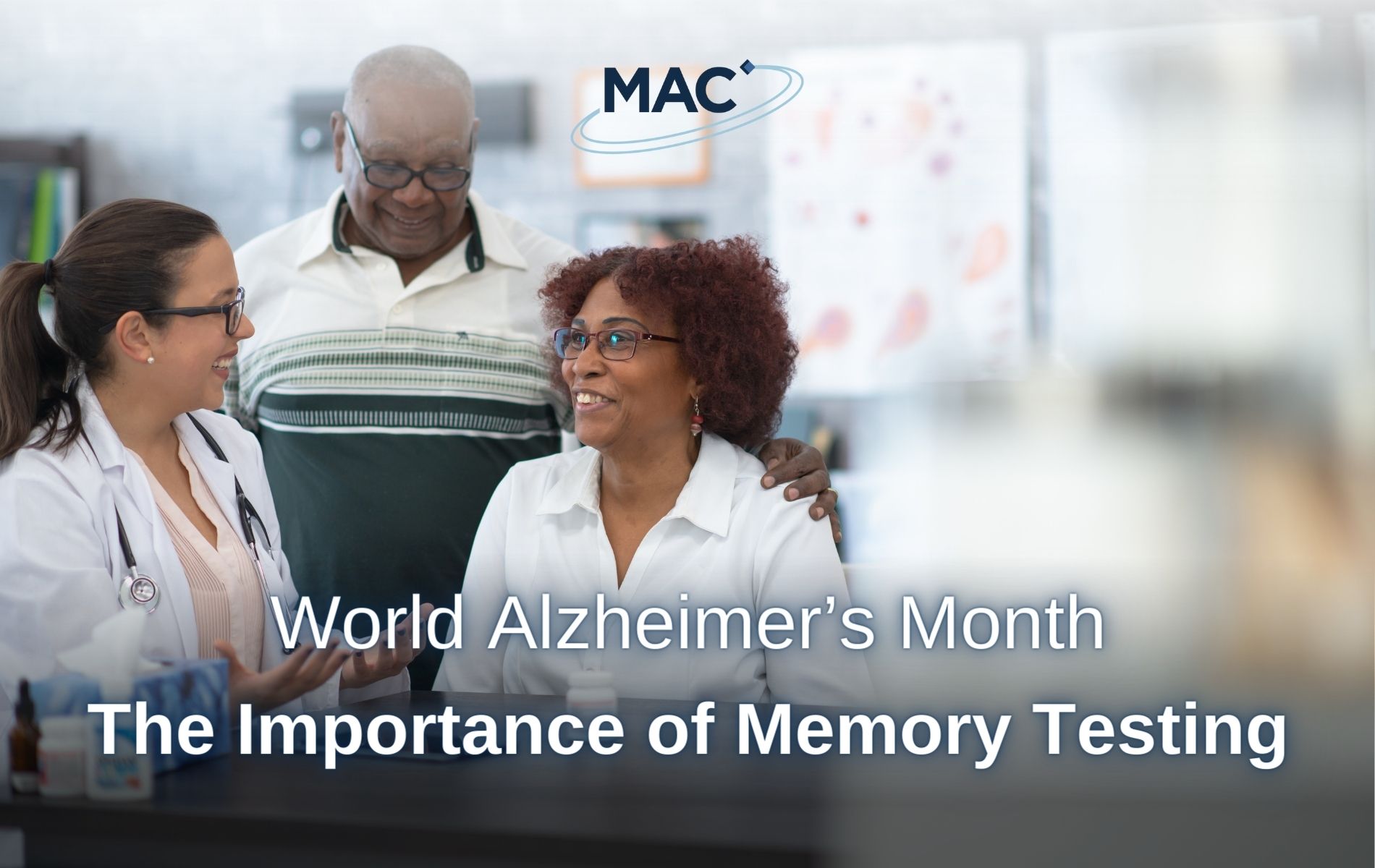Every September, the world comes together to recognise World Alzheimer’s Month; a global opportunity to raise awareness, educate and encourage support for those living with dementia, their families and carers.
In 2019, it was reported that over 748,000 people in the UK live with dementia and, if current trends continue, the number of people with dementia in the UK is forecast to increase to 1,000,000 by 2025 and 1,590,000 by 20401.
Alzheimer’s Disease is the most commonly diagnosed form of dementia. It is a progressive condition which leads to the gradual decline of brain function, impacting memory, thinking skills and other mental abilities. The condition can cause confusion, agitation, difficulty making decisions, and issues with speech and mobility.
The condition, as well as several other forms of dementia, can be assessed through memory tests. Memory tests are designed to assess an individual’s cognitive abilities, particularly their memory function. These tests are crucial in identifying early signs of dementia and other cognitive impairments.
They help healthcare professionals distinguish between normal age-related memory decline and the more serious cognitive decline associated with dementia. Early detection allows for early intervention, which can significantly improve the quality of life for individuals living with dementia.
One of the tests used for determining Alzheimer’s is known as the Addenbrooke’s Cognitive Examination (ACE)2. The test assesses elements such as a person’s memory, attention, and language. Patients are scored out of 100: a score of 88 and above is considered normal; below 83 is abnormal; and between 83 and 87 is inconclusive.
If Alzheimer’s is diagnosed early by completing memory tests, the individual living with the condition will have access to wider treatment options and have a better chance of benefitting from strategies that might support them living well. Furthermore, an early diagnosis may make people living with Alzheimer’s eligible to participate in clinical trials, which advance research and may provide further medical benefit.
Dr Penny Foulds from MAC Clinical Research said: “Memory loss isn’t always due to a dementia. For example, other possible causes could be stress and anxiety, certain medications, Vitamin B12 deficiency, hypothyroidism, and sleep apnoea”.
World Alzheimer’s Month serves as a reminder that dementia is a global issue, affecting millions of lives. By emphasising the importance of memory tests, this observance aims to encourage regular cognitive assessments for individuals, especially those at higher risk due to age or family history.
Early detection not only allows for better medical management but also empowers individuals and their families to plan for the future, make legal and financial arrangements, and access appropriate support networks.
In addition to benefiting individuals, memory tests also play a crucial role in advancing dementia research. By identifying individuals with early cognitive impairments who are interested in taking part in clinical research, medical professionals can study the progression of the disease and test potential interventions. This collective effort contributes to a deeper understanding of dementia and paves the way for innovative treatments.
Did you know that MAC Clinical Research established some of the very first memory clinics in the UK? MAC continue to proudly provide free memory tests to the local communities in Lancashire, Merseyside, South Staffordshire, South Yorkshire, Teesside, and West Yorkshire.
Dr Foulds adds: “If you are worried about your memory, MAC can support you with your concerns. If our Memory Clinic team think that your cognitive issues could be a result of something else, it may be the case that your doctor might order blood tests and brain scans which may help identify reversible causes”.
At MAC Clinical Research, individuals attending the memory clinic can benefit from:
- An appointment within four weeks with the specialist team who are registered Dementia Friends
- Assessment and discussion of memory concerns in a relaxed friendly environment
- Explanation of the results of the assessment
- Liaison with their GP
- Ongoing memory reviews where needed
- Option to access potential new treatments via clinical trials
If you are over 50 years old and have concerns about your memory, visit our Memory Assessment Research clinic’s webpage for more information.
1 Alzheimer’s Society – Alzheimer’s Society’s view on demography






